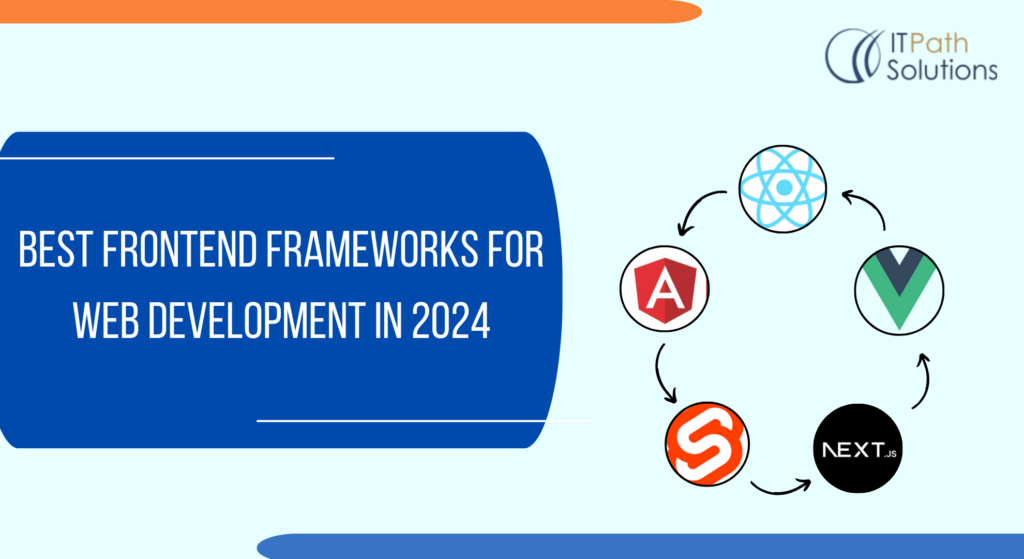The Ultimate Guide to Understanding the Difference Between .NET and C#
Web Development
What Is .NET?
.NET is a free, open-source, cross-platform framework developed by Microsoft for building modern applications, including desktop, web, and mobile apps. It supports multiple programming languages and provides a common set of libraries and tools for developers to build and run their applications.
Difference Between .Net Vs C#
.Net Main Characteristics
Object-Oriented
Supports object-oriented programming concepts such as classes, objects, inheritance, polymorphism, and encapsulation.
Platform Independent
.NET Framework can run on multiple platforms including Windows, macOS, and Linux.
Language Interoperability
Supports multiple programming languages, allowing code written in one language to interact with code written in another language.
Memory Management
Automated memory management through garbage collection.
Security
Built-in security features such as code access security and role-based security.
Strong Type Checking
Supports strong type checking, helping to prevent type-related errors at compile-time.
Interoperability
Interoperates with other programming languages and technologies, including COM and Java.
Portability
Portability across different hardware and software platforms through the use of a Common Intermediate Language (CIL).
Large Class Library
A large and comprehensive class library that provides a wide range of functionality, including data access, file input/output, and XML manipulation.
Integrated Development Environment
Includes a comprehensive integrated development environment (IDE) with tools such as Visual Studio.
Features of .NET
Cross-platform
Runs on Windows, macOS, and Linux.
Multiple language support
Supports multiple programming languages including C#, F#, and Visual Basic.
Common Runtime
A common runtime environment for all .NET applications.
Object-oriented programming
Supports object-oriented programming concepts such as inheritance, polymorphism, and encapsulation.
Strong security
Built-in security features such as code access security and role-based security.
Easy deployment
Supports easy deployment of applications through ClickOnce technology.
Integrated development environment
.Net provide a comprehensive integrated development environment (IDE) with tools such as Visual Studio.
Large Class Library
A large and comprehensive class library that provides a wide range of functionality, including data access, file input/output, and XML manipulation.
Memory Management
Automatic memory management through garbage collection.
Scalable
Scalable for both large and small applications.
Entity Framework:
Entity Framework simplifies database interaction by providing an object-relational mapping (ORM) framework for data access.
Security: .NET offers robust security features, including code access security, role-based security, and encryption to protect applications and data.
Support for Various Application Types:
.NET can be used to develop a wide range of applications, including Windows desktop applications, web applications, mobile apps, cloud services, and IoT solutions.
Exception Handling:
.NET provides a structured approach to exception handling, making it easier to manage errors in applications.
What Is C#?
C# is a modern, object-oriented programming language developed by Microsoft for developing a multiple of applications, including Windows desktop, web, mobile, gaming, and more. It is a statically-typed language, meaning that variables must be declared before they can be used, and supports features such as inheritance, polymorphism, and encapsulation. C# is part of the .NET framework and can be used in conjunction with other .NET languages to build powerful and scalable applications.
C# Main characteristics
Object-Oriented
Supports object-oriented programming concepts such as classes, objects, inheritance, polymorphism, and encapsulation.
Strong Typing
Statically-typed language means that variables must be declared before they can be used.
Multi-paradigm
Supports multiple programming paradigms such as imperative, functional, and event-driven programming.
Cross-Platform
Can be used to build applications for Windows, macOS, and Linux.
Memory Management
Automated memory management through garbage collection.
Modern Language
A modern language that supports features such as LINQ, asynchronous programming, and lambdas.
Performance
Provides high performance due to efficient memory management and advanced language features.
Interoperability
Interoperates with other .NET languages and technologies.
Concise Syntax
Provides a concise and expressive syntax, making it easier to write, read, and maintain code.
Integrated Development Environment
Includes a comprehensive integrated development environment (IDE) with tools such as Visual Studio.
Features of C#
Object-Oriented
Supports object-oriented programming concepts such as classes, objects, inheritance, polymorphism, and encapsulation.
Strong Typing
Statically-typed language, meaning that variables must be declared before they can be used.
Multi-paradigm
Supports multiple programming paradigms such as imperative, functional, and event-driven programming.
Cross-Platform
Can be used to build applications for Windows, macOS, and Linux.
Memory Management
Automated memory management through garbage collection.
Modern Language
A modern language that supports features such as LINQ, asynchronous programming, and lambdas.
Performance
Provides high performance due to efficient memory management and advanced language features.
Interoperability
Interoperates with other .NET languages and technologies.
Concise Syntax
Provides a concise and expressive syntax, making it easier to write, read, and maintain code.
Integrated Development Environment
Includes a comprehensive integrated development environment (IDE) with tools such as Visual Studio.
When to Choose .Net and C#
When building Windows-based desktop or server applications, .NET provides a comprehensive and integrated development environment. When building web applications, .NET provides a wide range of tools and technologies, including ASP.NET, to build and deploy scalable and secure web applications. When building enterprise applications, .NET provides a large class library, security features, and integration with other technologies to build robust and scalable applications. .NET has a large and active community of developers, providing support, tutorials, and open-source libraries.
When building web and desktop applications, C# provides a comprehensive and integrated development environment with Visual Studio. C# can be used with ASP.NET to build scalable and secure web applications. When building enterprise applications, C# provides a large class library, security features, and advanced language features to build robust and scalable applications. C# provides high performance due to efficient memory management and advanced language features. C# has a large and active community of developers, providing support, tutorials, and open-source libraries.
List of companies that use .Net and C#
Who Uses .Net
Samsung
Microsoft
JP Morgan Chase
Intel
Cisco
Dell
Capgemini
GoDaddy
JetBlue
Siemens
Raytheon
BMW
Ford
American Red Cross
Vodafone
Who Uses C#
Delivery Hero
Stack Overflow
Trustpilot
Venmo
PedidosYa
VTEX
Clear Bank
Bagel Code
Boeing
General Electric (GE)
Intuit
Unity Technologies
Conclusions
Both .NET and C# have Certain characteristics and features, we know everything about NET and C#. and can bring your ideas to reality using these outstanding technologies, in compliance with the best industry standards. We have over one decade of .NET development expertise. We offer a range of services, including custom .NET software & web development, consulting, modernization, testing, and QA. Want to hire .NET developers from India, USA? Get in touch and discuss your project with the right expert professionals.
 Healthcare
Healthcare  Education
Education  Real Estate
Real Estate  Logistic
Logistic  Fitness
Fitness  Tourism
Tourism  Travel
Travel  Banking
Banking  Media
Media  E-commerce
E-commerce 




